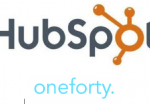 Facebook has been innovating on its way, but its ‘Like’ button is into some trouble as it was found on Friday that it has been violating strict privacy laws of Germany. Commissioner Thilo Weichert said that the ‘Like’ button of Facebook is used for allowing people in expressing their liking for some post online. However, when a user likes something, their web habits are put together as a profile illegally. Thilo Weichert has been working in the northern German state of Schleswig-Holstein for the Independent Centre for Privacy Protection (ULD).
Facebook has been innovating on its way, but its ‘Like’ button is into some trouble as it was found on Friday that it has been violating strict privacy laws of Germany. Commissioner Thilo Weichert said that the ‘Like’ button of Facebook is used for allowing people in expressing their liking for some post online. However, when a user likes something, their web habits are put together as a profile illegally. Thilo Weichert has been working in the northern German state of Schleswig-Holstein for the Independent Centre for Privacy Protection (ULD).
ULD said that when one visits Facebook and uses any plug-in of the social network such as the Like button, the company can track them for a span of two years. This would mean that the social networking giant was allegedly building an individual’s broad profile which would not be for serving the users, but would help enriching the profile personalization for its other members. The process here is via the U.S. servers of Facebook. These servers first receive traffic and content data which gets transferred to them, following which an analysis is passed on by them which goes to the website owner for the purpose of its usage.
ULD is of the view that any such profiling lists as for infringement of data protection law in Germany and Europe. ULD continued stating that this information is not briefed to the users and the privacy statements and conditions of use mentioned by Facebook fails to meet the relevant legal requirements which ask for compiling with a legal notice. ULD has come up with a demand for the Schleswig-Holstein based websites to get their Facebook Pages removed. In addition, ULD even has asked for the removal of the ‘Like’ button which might be available on their websites. The time frame set for these websites is till the end of September 2011. The penalty for non-removal could be up to €50,000 ($72,000).
However, even the common Internet users were advised by ULD to not to make use of these social plug-ins of Facebook. They went ahead with an advice for the Internet users to stay away from setting up an account on Facebook if they do not want to get in the trap of comprehensive profiling by Palo Alto. Another point made by the organization was for Facebook requirement of making use of actual names, which are a part of personal information and a user is not given an option to keep it private.

There was more for the cry by ULD as it noted that there were many other conflicting offerings of Facebook which were not as per the law. The point then was made in an informal manner. It regretted saying that even after so many conflicting offerings, the website owners have continued using the said services. In addition, these services are free of cost and the installation is even very easy.
As expected, there was a disagreement from Facebook’s end where it stated that Facebook is compliant with EU data protection standards. Facebook’s spokesperson said that users have extensive control over the ‘Like’ button, which has been a reason for its popularity. This specific plug-in has been of value for individuals and businesses on a daily basis for more than a year now. However, they said that they would look into the content which has been produced by ULD.


